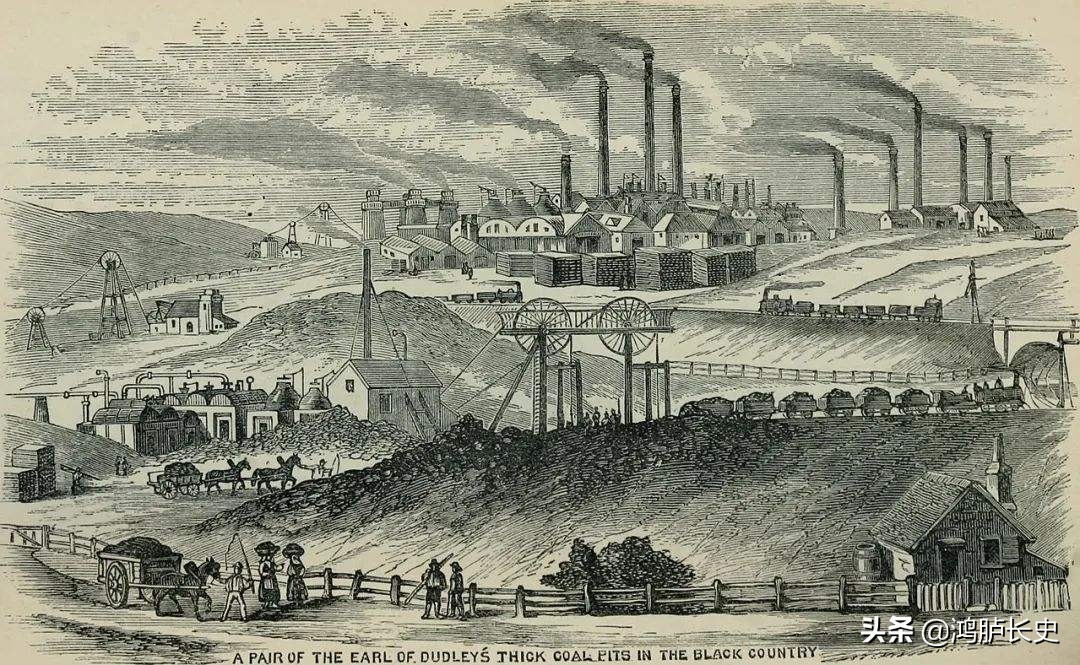A major event occurred in the world in the nineteenth century: Prussia in Europe completed the unification of Germany, and a powerful state was born in Central Europe, which was once a small country. In the process of completing the unification of The German region, Prussia had a fierce war with the European hegemon France, although it did not destroy France in one fell swoop.
Why is that? It should be known that with the defeat of the Battle of Sedan, the main force of the French legion was almost destroyed, and Prussia seemed to be able to easily annex France. However, the real situation at that time was far more complicated than this, and it seemed that the war between the two sides had too many geopolitical entanglements.
In fact, since Europe opened the age of great navigation, the world's wealth has converged to Europe. Colonization of other regions eventually led to the Industrial Revolution in Europe, pushing mankind from an agrarian society to an industrial society.
However, although the Industrial Revolution has occurred in Europe, there are also successive divisions in Europe. As a result, the first-mover Britain had far more power than other countries, and by the time Prussia launched a war of unification, Britain could be described as the only one.

For The UK, how to maintain its voice on the Continent is crucial. Only the checks and balances between the countries of the European continent can highlight the importance of Britain, so the United Kingdom pursues a "continental balance of power" strategy for the countries of the European continent. At that time, whoever wanted to break this equilibrium in Europe was against Britain.
As for the end, think of France in the early nineteenth century, although it swept across the continent under the leadership of Napoleonic, but under the resolute confrontation of Britain, it eventually failed, and it was exiled to the Atlantic.
In this regard, Bismarck, the Prime Minister who dominated prussia unification, must have studied this deeply, and how to avoid British intervention became an aspect that must be considered. If Prussia not only defeated France, but also intended to annex France, it would certainly break the strategy pursued by Britain, and in order to maintain British intervention in Continental affairs, it would inevitably lead to British participation in the war.
At this time, Prussia had just completed the unification of Germany, and its foothold was unstable, and it was difficult to deal with the encirclement and suppression of Britain. For this reason, it was prussia's policy not to weaken France too much, after all, Prussia wanted only to complete the unification of Germany, and all that needed to be done was to end French influence in the German region.
For this reason, in the case of winning the Battle of Sedan and defending Paris, the French could only sign an alliance under the city, and there was no need to weaken France too much, or even annex France.
In addition, for Prussia, once it wanted to annex all of France, it needed to establish a ruling apparatus on the land of the French, which was a completely different task from the unification of Germany. After all, the German regions belonged to the same nation and had a strong desire for unification, and Prussia was nothing more than a boat ride.
And to annex all of France would be tantamount to the conquest of the French, which was unacceptable to the French who had swept through Europe and had a strong industrial strength. Even if Prussia could force some people to agree to Prussian rule, the majority would certainly not cooperate.
When the Prussian army entered a hostile kingdom and wanted to establish its rule in it, it was difficult to imagine. Prussia, in particular, had not yet completed its integration of the German regions, and it was difficult to devote much power to establishing rule over the vast french lands.
Once Prussia sinks into the quagmire of France, the victorious Kingdom of Denmark and Austria will inevitably be eager to move, hoping to be disgraced. Under such circumstances, Prussia was bound to fail, let alone complete the unification of Germany.
Therefore, in any case, Prussia could only force France to sign an agreement in its favor, and could not erase France from the map. After all, Prussia only wanted to complete the unification of Germany, and since it could defeat the other side to achieve its goals, there was no need to do anything else.
Thank you for your attention and support, welcome to like, comment and retweet.